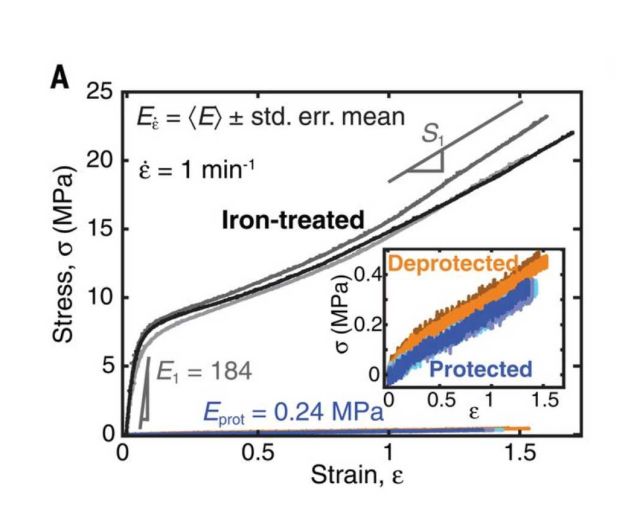
Toughening elastomers using mussel-inspired catechol-iron complexes
Emmanouela Filippidi, Thomas R. Cristiani, Claus D. Eisenbach, J. Herbert Waite, Jacob N. Israelachvili, B. Kollbe Ahn, and Megan T. Valentine. Science 358 (6362) 502-505 (2017).
Abstract
Materials often exhibit a trade-off between stiffness and extensibility; for example, strengthening elastomers by increasing their cross-link density leads to embrittlement and decreased toughness. Inspired by cuticles of marine mussel byssi, we circumvent this inherent trade-off by incorporating sacrificial, reversible iron-catechol cross-links into a dry, loosely cross-linked epoxy network. The iron-containing network exhibits two to three orders of magnitude increases in stiffness, tensile strength, and tensile toughness compared to its iron-free precursor while gaining recoverable hysteretic energy dissipation and maintaining its original extensibility. Compared to previous realizations of this chemistry in hydrogels, the dry nature of the network enables larger property enhancement owing to the cooperative effects of both the increased cross-link density given by the reversible iron-catecholate complexes and the chain-restricting ionomeric nanodomains that they form.